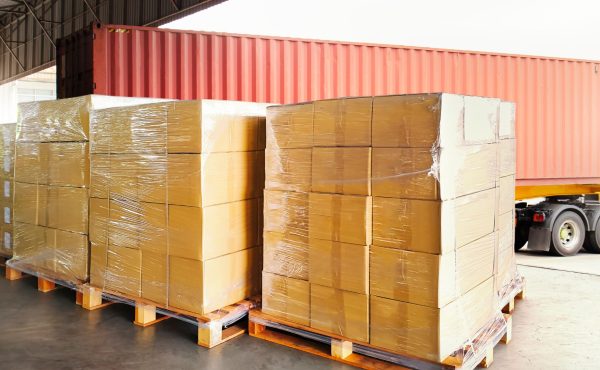Cybersecurity in international logistics: how to protect your operations in 2025
In the digital era, cybersecurity has become a fundamental pillar for business continuity and efficiency. From the financial sector to healthcare and manufacturing, data protection and IT systems are crucial for preventing attacks that could compromise sensitive information, generate economic losses or affect the reputation of companies. In a hyper-connected world, where emerging technologies such as artificial intelligence and the Internet of Things (IoT) play a key role, IT security must constantly evolve to counter increasingly sophisticated threats.
International logistics is no stranger to these challenges. With an ecosystem based on the interconnectivity of suppliers, carriers, customs and customers, cybersecurity is a very relevant aspect to ensure operability and avoid disruptions in the supply chain. A cyber-attack on a port, a cargo airline or a logistics software provider can lead to chaos in global freight distribution. Throughout 2025, the implementation of security measures will be key to maintaining efficiency and safety in logistics and freight forwarding operations. What strategies can be activated?
Key strategies for logistics cybersecurity
- Implementation of cybersecurity in the supply chain: the integration of security systems in every stage of the supply chain is essential. For example, logistics operators must ensure that their ERP and TMS systems have robust security protocols in place to prevent unauthorized access to sensitive customer and shipment data.
- Multi-factor authentication and data encryption: The use of multi-factor authentication (MFA) and end-to-end encryption for the transmission of critical data, such as shipment information or customs details, protects against unauthorized access. For example, a freight forwarder that manages international shipments can protect its customers’ information by implementing these mechanisms in its management software.
- Continuous monitoring and threat detection: using technology to detect unusual patterns in data traffic helps prevent attacks before they occur. A smart warehouse operator could benefit from monitoring systems that alert on possible security breaches in its servers.
- Constant staff training: one of the most vulnerable points in cybersecurity is the human factor. Regularly training employees on best practices, such as identifying phishing emails or avoiding the use of unauthorized devices on corporate networks, reduces the risk of incidents. For example, a carrier who receives fraudulent e-mails requesting changes to the shipping route could avoid falling for a scam if he or she is properly trained.
- Backup and disaster recovery: having contingency plans and backups in the cloud ensures rapid recovery in the event of ransomware attacks or system failures. A logistics operator with digital infrastructure can ensure business continuity if it has up-to-date recovery protocols in place.
- Partnering with experts: Collaborating with cybersecurity firms to audit and improve protection systems helps reduce vulnerabilities. An international port could hire cybersecurity experts to assess and improve its connectivity networks and cargo management platforms.
- Compliance with international regulations and standards: by 2025, compliance with regulations such as ISO 27001 or NIS2 will be vital to ensure secure operations. A logistics provider that complies with these standards can demonstrate its commitment to safety and gain the trust of its customers.

High levels of safety in the storage, transport and distribution of goods
According to experts, millions of cyber-attacks occur around the world every single day. Protecting companies is a challenge and in the logistics sector it is urgent that the aforementioned actions and others are not neglected. At Logisber we hold security as a core value in all our warehousing, transportation and distribution operations, ensuring data protection and supply chain efficiency in a digitalized world.
If you want your international shipments to be safe, contact Logisber now and our team of professionals will provide you with rigorous and personalized advice.
Categorías
Compartir









